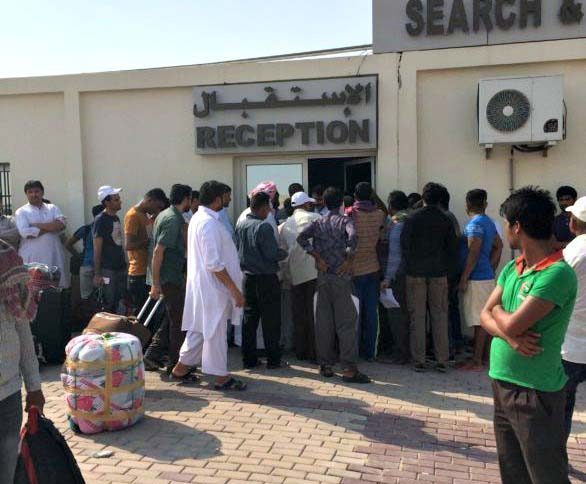
More than 1,000 people have left Qatar in the past six weeks, taking advantage of a new grace period for undocumented residents.
Many of the people petitioning to leave hail from popular labor-sending countries such as Bangladesh, Nepal and Sri Lanka.
So far, more than 700 Bangladeshi nationals have sought their embassy’s assistance to leave Qatar, according to Mohammed Rabiul Islam, first secretary of labor.
He added, “Anyone who needs help from us in going back to Bangladesh can come to us and we will do our best to help him.”

Additionally, some 229 Nepali citizens have come to the embassy for help on obtaining travel documents, labor attache Narendra Gawayali told Doha News.
Meanwhile, more than 450 Sri Lankans have left Qatar under the amnesty program since Sept. 1, the embassy here told Gulf Times.
The numbers are expected to pick up before the scheme expires on Dec. 1, officials added.
The same goes for Indian nationals. Officials said they are expecting some 6,000 to 8,000 of their nationals to take advantage of the amnesty by December, but could not offer up-to-date figures last week.
The law
Currently, is illegal for expats to work in Qatar without a visa. And those who wish to switch jobs must get approval from their current employer.
Sometimes, a person who quits his/her job – usually domestic workers who leave their sponsor’s home – can be classified as “runaways” or “absconding” employees.

To leave Qatar under the amnesty program, expats must file the necessary documents at the Ministry of Interior’s Search & Follow-Up Department (SFD).
They are: valid passport or travel papers, a plane ticket or reservation and an ID card or entry visa copy.
Abusive employers
Speaking to Doha News, many people have said they lost their legal status after fleeing sponsors who failed to pay them or who were abusive.
Last week while at the SFD, Bullet Yadav, a driver from India, said he was beaten and injured by his boss:
“My employers did not even pay for the treatment and since that day, I left their home and have worked in grocery stores across Doha to earn my livelihood.
I don’t want to ever go back working with my sponsor since I might get beaten again.”
Meanwhile, Bangladeshi expat Mohammed Basirul has been in Doha for 14 months. He was working as a house helper, and initially things were going well.

But gradually, his salary started getting delayed. And when he asked about them, he was threatened with never getting paid.
This is when he decided to leave and started doing odd jobs and saving money to buy his ticket home.
“Luckily, the government announced the amnesty and today I came to know that I also need a travel permit from the embassy to be able to go back home. I did not know of this before,” he said.
The amnesty program, Qatar’s first in 12 years, expires on Dec. 1, shortly before new reforms to the kafala system are implemented.
Thoughts?







